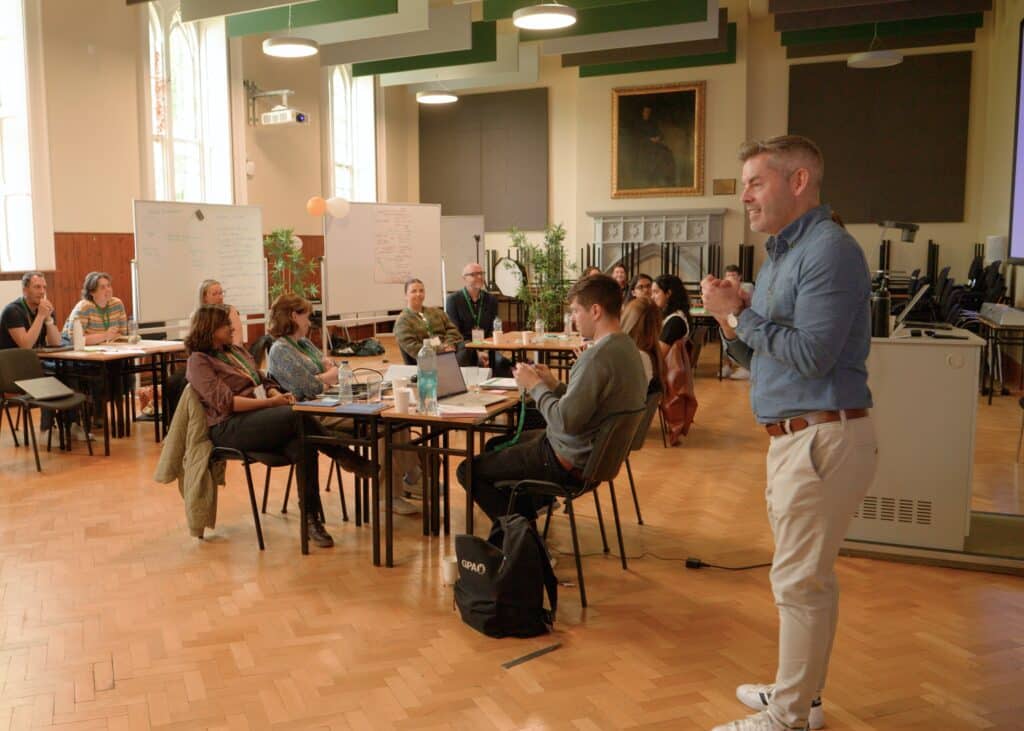A Tribute to Professor Dan Olweus
As we celebrate this year’s Anti-Bullying Week, it is fitting that we pause to pay tribute to the founding figure of bullying research, Professor Dan Olweus, who passed away in September 2020.
It is difficult to overstate the significance of Olweus’ anti-bullying work. Olweus was the first to identify that bullying was a phenomenon which required systematic study in order to prevent and reduce incidents. Until his work, little attention has been paid to bullying and it was largely accepted as an inescapable, normal part of growing up. His work began in Sweden in 1970 to identify the prevalence rates of bullying in schools with 1,000 boys aged 12 – 16 years old. The results of this work “Aggression in the Schools: Bullies and Whipping Boys” was published in English in 1978 and has now been translated into 25 different languages. One way the influence of his work can be demonstrated is by the graph below which traces the presence of the words “bully”, “bullies”, and “bullying” [1] in books from 1900 – 2019.
Olweus also formulated the most widely used and adapted definition of bullying. This aspect of the work was vital to enable common understanding and vocabulary about the problem and to develop ways to address it. Although consensus of a single definition of bullying has not been established, Olweus argued that the commonly recognised characteristics that define bullying include: (i) the intention of the bully to cause harm; (ii) repetition and; (iii) an imbalance of power. Indeed, these characteristics are used in Northern Ireland Anti-Bullying Forum’s own definition of bullying, “the repeated use of power by one or more persons intentionally to harm, hurt or adversely affect the rights and needs of another or others”. Drawing on his experience from Sweden, Olweus developed his ‘Bully/Victim Questionnaire’ measuring tool which was anonymous and could be administered by teachers. This questionnaire was different from other surveys on the subject because it provided a definition of bullying, the questions referred to a specific time period and it had fairly specific response alternatives. When the ‘Bully/Victim Questionnaire’ was administered to children the following definition was used to ensure a shared understanding of what was being measured:
“We say a pupil is being bullied when another pupil, or several other pupils
- say mean and hurtful things or make fun of him or her or call him or her mean and hurtful names;
- completely ignore or leave him or her out from their group of friends or leave him or her out of things on purpose;
- hit, kick, push, shove around, or lock him or her inside a room;
- tell lies or spread false rumours about him or her or send mean notes and try to make other pupils dislike him or her;
- and other hurtful things like that.
When we talk about bullying, these things happen repeatedly, and it is difficult for the pupil being bullied to defend himself or herself. We also call it bullying when a pupil is teased repeatedly in a mean and hurtful way.
But we don’t call it bullying when the teasing is done in a friendly and playful way. Also, it is not bullying when two pupils of about equal strength or power argue or fight.”
After identifying, defining and measuring the problem of bullying, Olweus pioneered a further aspect of anti-bullying work by conducting the first systematic study of a bullying intervention program. The purpose of Olweus Bullying Prevention Program was to reduce and prevent bullying problems amongst school children and improve peer relations in school. Results from six large-scale evaluations involving more than 40,000 students have shown average reductions by 20% – 70%[2] in pupil reports of being bullied and bullying others. Peer and teacher ratings of bullying problems have produced comparable results. The Olweus Bullying Prevention Program has gained both international and national recognition as the most researched and best-known bullying prevention programme available today.
Olweus’ influence on anti-bullying work is immeasurable. The theme of this year’s Anti-Bullying Week “United Against Bullying”, in which multiple organisations and agencies share a common understanding, language and purpose to prevent bullying, is possible largely in part due to the major contributions Olweus made in this area for over fifty years. Our collective understanding of bullying and how it continues to evolve in new ways will continue to benefit from the ability to stand on the shoulders of giants, like Olweus, who have laid the foundations.
Dr Donna Kernaghan
Vice Chair, Northern Ireland Anti-Bullying Forum
[1] https://www.psychologytoday.com/us/blog/resilience-bullying/202010/the-legacy-professor-dan-olweus-part-one
[2] file:///C:/Users/User/Downloads/olweus_research_history.pdf



